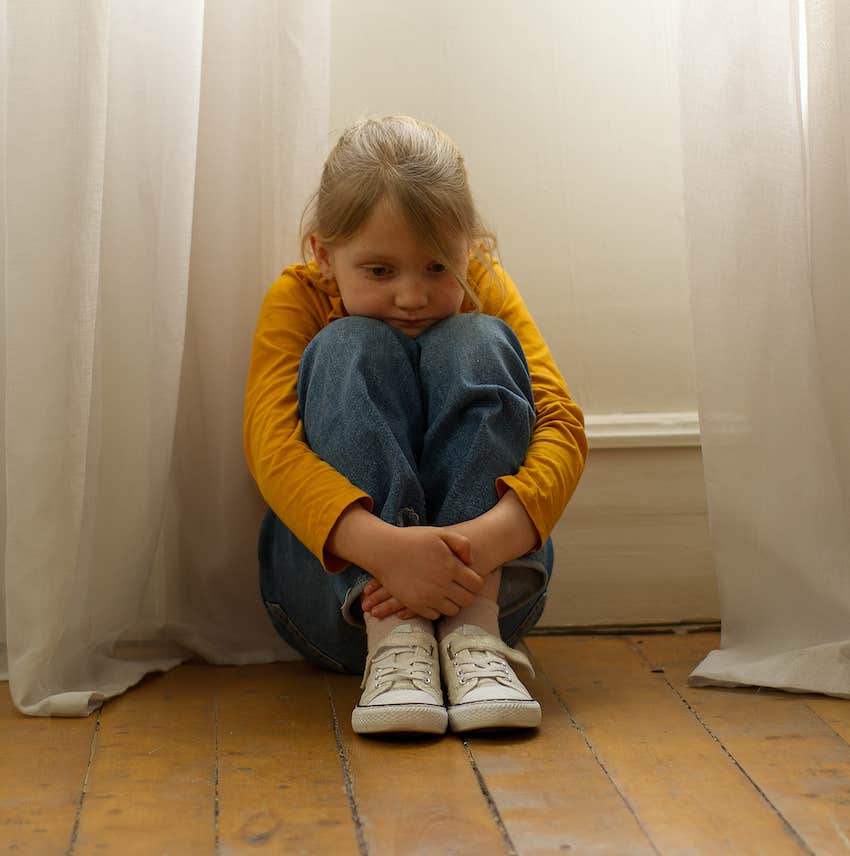Parents Who Refuse To Raise Selfish Kids Focus On These 6 Emotional Skills
If your parents did this with you, you're probably a pretty good human.
 Weekend Images Inc. | Canva
Weekend Images Inc. | Canva Most parents want their darling children to behave perfectly at all times. A 'good kid' will grow up to be a good adult, right? Actually, no. Well-behaved children can become selfish adults, too. So what actually works?
In reality, every good kid has a selfish side. It's all part of being human. Dealing with your child's selfishness is a challenge every good parent must face. Which, of course, is easier said than done, because allowing your kids to face their lack of empathy is rarely pretty.
To help you handle the selfishness lurking inside your good kid, here are some ways to help transform epic battles of selfishness into moments of modeling empathy.
Parents who refuse to raise selfish kids focus on these emotional skills
1. How to be empathetic
The capacity to feel empathy is innate in most children, as explored in the Journal of Neuroscience Research. You must actively (and consistently) cultivate empathy for it to truly take hold. Nurture wins over nature on this one. Rather than teaching only "do as I say" rules (which reinforce dominance as the ultimate measure of power and success), help your children imagine how others will feel about their behavior.
When your kid does something unkind (even cruel), ground yourself in the knowledge that even though that gleam in their eye seems vicious or mean-spirited; your child is innocent at heart. Your child just needs help practicing how to act on their instinctive, powerful impulses in a non-destructive way. An essential skill to learn if having friends is a goal in life (not just having power).
Later on in life, people will love and respect your child’s ability to speak their mind lovingly. But, be clear — children need their 'selfish energy to become successful, assertive adults! The shadow is part of the core of your child; along with the wonderful, loving being they are.
Family coach Tara Kennedy-Kline explained, "While you want your kids to speak their minds, they also need to learn there is a proper time and place for everything. (Not to mention the fact your kids should be showing you and other adults respect!) That's what makes it super important for you to draw the line early on when back-talking and other disrespectful actions first arise. Waiting to address this problem will only make things worse for you and your kids!"
2. How to have healthy power struggles
 Tijana Moraca via Shutterstock
Tijana Moraca via Shutterstock
Power struggles are normal. They're a place for children to practice balancing negative energy ("I want my way") with positive energy ("How can we all feel good about this?). To master their shadow side, they must battle your shadow.
Make sure your child feels some power and influence to push up against the boundaries you must clearly hold as a responsible adult. Let your child "win" some of the battles they feel strongly about.
3. How to redirect your own attention and stay calm
Channel your youngster’s head-strong, innocent meanness toward passion and creativity. When your 3-year-old (or, 13-year-old) acts out, any positive passion and creativity may seem hidden, however, it's there, trust me.
Parents must learn the challenging art of staying calm (in the face of a child's outburst) and then using their calm to refocus the anger or energy of their child toward a more constructive goal, as suggested by research in The Keio Journal of Medicine. The goal is not shutting your child down, but rather, harnessing that need to "win" and "control" into something positive.
Children actually grow new connections in their brains when they learn how to redirect their intense feelings this way.
4. How to master (and use) your shadow side
Your child will instinctively know where you bottle up your negative energy and how to poke at your defenses, as suggested by an article in the European Journal of Trauma & Dissociation. To stay one step ahead of them, you must know your own shadow side better than your children do — how your shadow helps you, or when it hurts you.
If you were over-disciplined as a child, you likely learned to bottle-up your own powerful feelings out of fear of stricter discipline. You might then pass this over-disciplined fear on to your child by rushing to squelch any signs of being questioned or challenged.
If you were under-disciplined, perhaps you didn't fully learn the consequences of inappropriate shadow actions. You may find setting and holding healthy boundaries difficult as an adult. Keeping yourself calm when your child provokes you may also feel difficult, but it's worth reaching for.
5. How to face natural consequences and learn from them
 Maya Lab via Shutterstock
Maya Lab via Shutterstock
If your child pulls the cat’s tail — a time out (one minute per year up to 10 years old) is in order, followed by an apology to the cat and touching the cat kindly (model the behavior you want to see). Also, have your child look you in the eye and acknowledge what they did.
If your child is mean to others — In addition to a time out or losing privileges, your child needs to explain what they did. With older children and teens, identify "consequence tasks' together that you've agreed to in advance. That way, if they chose the behavior, they've also chosen the consequence.
If you have a physical child, a physical task is best (be sure everyone is safe). If this activity is helpful to the family, all the better (moving firewood, pulling weeds, raking leaves, shoveling snow, etc). Doing dishes, cleaning and other household tasks are great, too. Your child needs to apologize to and perform a kind act for the person they hurt to finish the discipline.
Fair but firm consequences speak louder (and make a more lasting impression) than a long, boring lecture any day!
6. How to hold yourself to a high standard
Find a consequence that works and stick with it throughout that stage of your child's growth. Get your youngster in the habit of looking you in the eye as a part of every consequence.
When your child repeats a bad behavior, you're at an advantage in knowing exactly which consequence to consistently use. Practicing a consequence each time should result in less effort on your end and help your child see that you aren't wavering. The standard you set is steadfast.
Even your 18-month-old can learn to give a soft hug to a person or animal they hit, poked, pulled, or squished. Set those behavior standards early and reinforce them consistently, as supported by an APA study.
A child's shadow side has value and purpose.
Your job is to help your children harness that energy and use it in positive ways. The powerful energy hidden in your child’s meanness contains the seed of their future assertiveness, passion and creativity.
So parent bravely!
Bill Maier is a psychotherapist, specializing in treating depression, PTSD, trauma, and addiction. He has helped thousands find their way to freedom from damaging habits.

